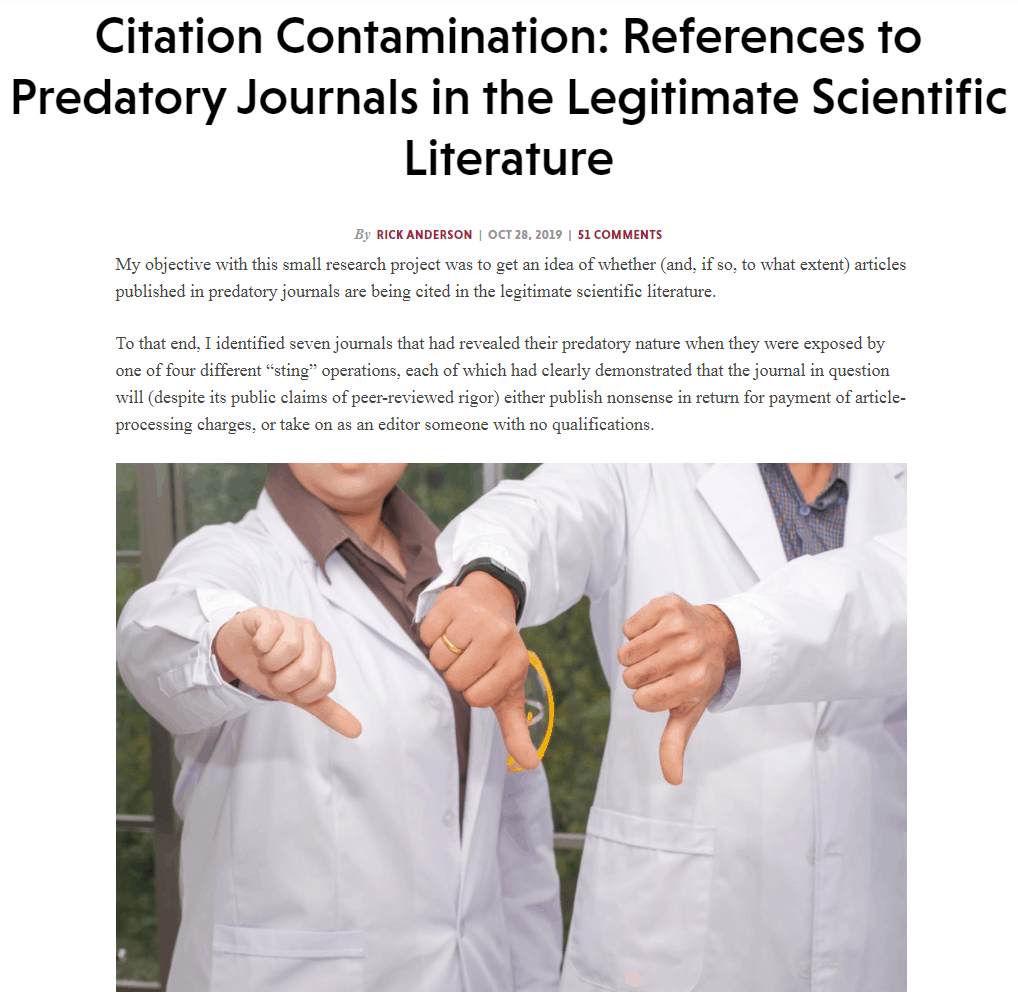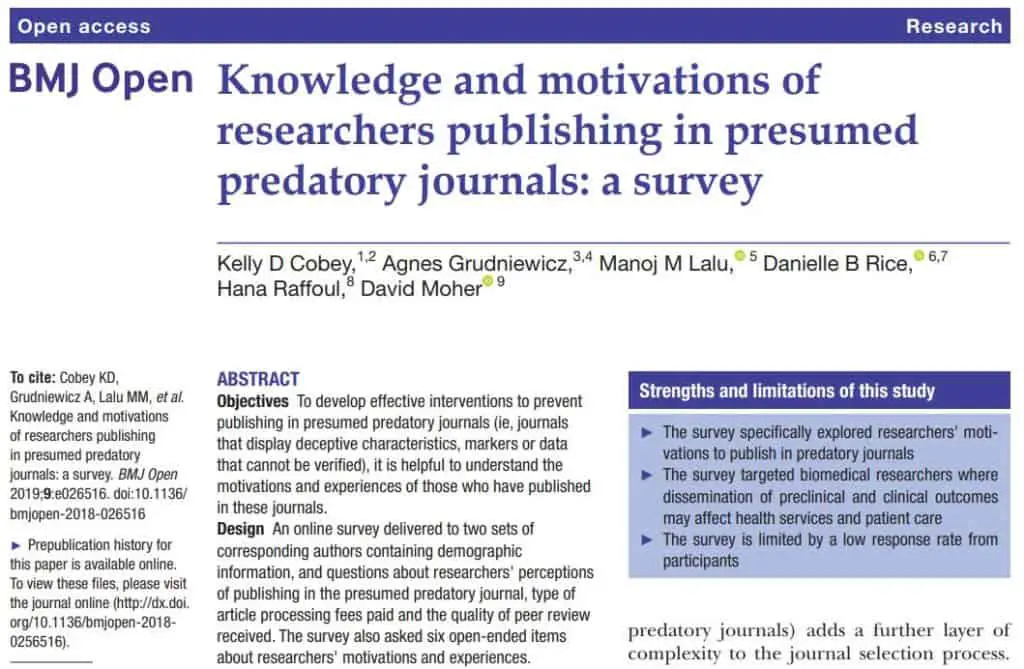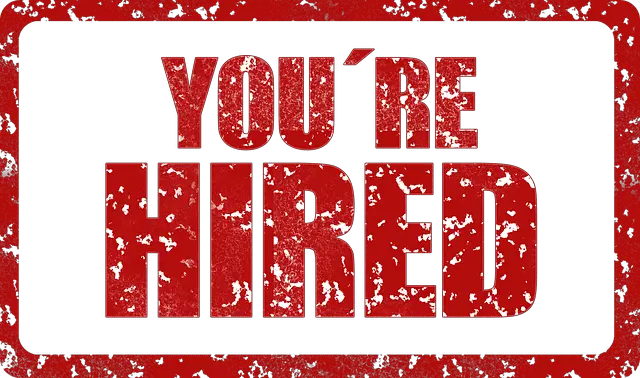In this day and age of publish or perish, there is a temptation to publish your journal articles wherever you can, on the assumption that quantity is better than quality. There has always been an argument over quality versus quantity (we believe that you should always go for quality), but the problem now goes deeper than that.
With the introduction of predatory journals, there is discussion whether scholars should submit to these journals, in the expectation that it will add enhance their CV as it will increase the number of publications they have authored.
You should NEVER submit to a predatory journal but if you want more convincing, some of the reasons are highlighted below. Moreover, publishing in predatory journals it will harm your CV.
If you are interested in how best to develop your academic CV, you might want to take a look at “The Professor Is In: The Essential Guide To Turning Your Ph.D. Into a Job” which gives advice on presenting your CV and also has a chapter entitled “Write this, not that” which gives advice on the type of papers you should be writing. The amazon link is here.
There is also some discussion whether authors actually choose to publish in predatory journals. In the paper “Knowledge and motivations of researchers publishing in presumed predatory journals: a survey” there are a couple of interesting quotes:
- “Only 10% of respondents reported being aware that their relevant article was published in a predatory journal; however, more than 70% were not willing to answer this question.“
- “In addition to professors feeling pressure to publish, many reported submitting to presumed predatory journals to help students publish.“
- “In the online survey of researchers from India, an institutional requirement of between one and three publications as a criterion for their PhD defence was reported by 90% of the respondents. What is troubling here is that students may model their professor’s behaviour and actively engage in submitting to predatory journals as a goal from the inception of their career.“
In the remainder of this article, we look at some areas that you may want to consider, which will impact your CV, which could damage your reputation.
Promotion
Many scholars will want to exhibit a high number of publications so that when they apply for promotion their CV has some bulk and has the number of publications that would be expected for the level that you are applying for.
If the promotion panel is doing its job correctly it will not be fooled by a list of predatory publications. One or two might slip through the net but too many will raise alarm bells. Even if the panel does not recognize a particular journal as predatory, others working in the discipline will start to question where you are publishing as they will not recognise the journals as those that they might expect to see on a high-quality CV.
It is usual to go out to external referees for some academic promotions so even if your CV manages to get past the internal promotions panel, external referees may pick up on that fact that you are publishing in predatory journals. This not only reflects poorly on you, but also questions the procedures that are in place at your institution, and they may not want this to be exposed to external stakeholders.
Getting another job
Most of the comments that we have made above for promotion equally apply to job applications, as both panels largely are looking at the same criteria.
There are additional complexities around job applications. You are certainly exposing yourself, and your current employer, to external scrutiny – whether that is a recruitment agency, another institution or reviewers – which may not be something you want to do. It is almost certainly something that your current institution would not want to open itself up to.
You also need to consider what happens if you get the position. You have to ask whether the institution has the funds to keep paying for you to publish in predatory journals. You could phrase this at interview by asking about their policy on Open Access (if you are not familiar with the Open Access model of publishing there is plenty of help of the internet, as well as books such as “Open Access (MIT Press Essential Knowledge series)” by Peter Suber. A link to Amazon for this book is here).
But that does not answer the question about how they decide which open access journals to invest in. You can ask this, but you need to be careful how far you delve, as it may start alarm bells ringing.
If you manage to navigate your way through the interview and get offered, and accept, the position you will be faced with the difficult decision where you now publish? If you continue as you have done, and are happy about publishing in predatory journals, your CV will continue to suffer for all the reasons given in this article.
If you are stopped from publishing in predatory journals, as your new employer has more robust procedures, or you decide to refrain from this practice then you have to ask yourself “Are you good enough to publish in the mainstream scientific literature, rather than rely on predatory publishers?” You might struggle to answer that question truthfully.
Citations
A recent post (28 Oct 2019) from The Scholarly Kitchen carried out a small study looking at whether articles published in predatory journals were cited by the mainstream scientific literature (that is, non-predatory journals). One of their worrying conclusions was that predatory journals were contaminating the scientific archive as mainstream journal articles do cite journals that have been published in predatory journals.

Whilst this might seem to be a good reason to publish in a predatory journal, we think there is more work to do on comparing the number of citations to articles in the mainstream scientific literature versus the citations received by those articles published in predatory journals. We suspect that there will be quite a difference, but there is research needed in this area.
One of our other articles looked at the impact that a (possible) predatory journal was having. If you look at the “Journal Impact” section you’ll see that the citations that the journal has received are self-citations, and not very many.
But what you should be worried about is the word contaminating. As a scholar you have a duty to carry out good research that has been peer reviewed so that when others cite that paper, they do so in the knowledge that it has been validated by experts in the discipline. If that peer review is missing, so that you can essentially publish anything, then the scientific archive loses its meaning and if this continues, it becomes meaningless.
As a scholar, your professionalism should stop you allowing the scientific archive to be contaminated with citations to articles in predatory journals.
Perhaps, even more important, if you are publishing in predatory journals, your peers may take the view that you are contaminating the scientific literature. We would certainly have that view and if we saw that your CV was peppered with articles from predatory journals we would start to question your integrity as a researcher.
Summary
As a scholar, your legacy will be your publications and you want your papers to be published in high quality journals. If you publish in predatory journals you are unlikely to get recognition by your peers and you may even damage your reputation. The papers you publish in predatory journals are unlikely to be cited, which will affect the impact of your research and, if you care about such things, it will stop metrics such as your h-index growing as fast as it could.
Perhaps the most worrying aspect is the lack of peer review, with all that entails. The fact that many (most? all?) predatory journals do not have the same peer review standards as more reputable journals means that the work has no place in the scientific archive.
More worrying, due to the lack of peer review, it means that anybody can publish anything, and have it published in a scientific journal. Others, not being aware that the paper has not really been peer reviewed may take the paper as being validated by experts in the area. This can lead to the peer review process being undermined and, even worse, could lead to a real negative impact on real lives, especially when these come from the predatory medical journals.
A final concern is that some scholars, Professors included, appear to believe that publishing in predatory journals is acceptable.
Just to make our position totally clear, our view is that you should NEVER submit to a predatory journal. It will harm your CV.
Image Acknowledgements
The header image (Curriculum Vitae on Typewriter) is by Nick Youngson under CC BY-SA 3.0.
Please consider supporting us by becoming a patron

Thank you for reading this article. If you would like to support the work we do, please consider becoming one of our patrons.
With your support, it will enable us to deploy some of the ideas that we have, and will also enable us to work more closely together. As an example, we will look at journals and/or publishers that you propose. You can read more here.




